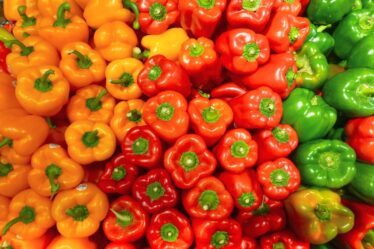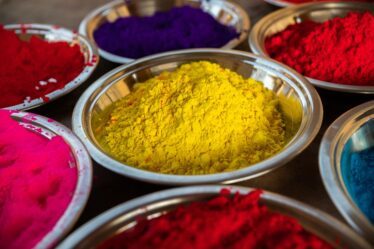
Ginger is a spice that has been used for centuries in various cultures around the world. It has a rich history and is known for its versatility in both cooking and medicine. The use of ginger dates back to ancient times, with evidence of its cultivation in Southeast Asia as early as 3000 BCE. It was highly prized and traded along the Silk Road, making its way to Europe and other parts of the world.
Ginger has been used in traditional medicine for its various health benefits. It is known for its anti-inflammatory and antioxidant properties, which can help reduce inflammation and oxidative stress in the body. It is also believed to aid in digestion, relieve nausea, and boost the immune system. In addition to its medicinal uses, ginger is widely used in cooking for its unique flavor and aroma.
Key Takeaways
- Ginger has a rich history and is a versatile spice with many health benefits.
- Ginger can help with digestive health, including nausea and bloating.
- Ginger can boost your immune system naturally.
- Ginger is an anti-inflammatory agent that can help manage pain and inflammation.
- Ginger can be used in traditional medicine, culinary dishes, beverages, and desserts.
The Nutritional Value of Ginger: A Closer Look at its Health Benefits
Ginger is packed with nutrients that contribute to its many health benefits. It is low in calories but rich in vitamins and minerals. A 100-gram serving of ginger contains approximately 80 calories, 17 grams of carbohydrates, 2 grams of protein, and less than 1 gram of fat. It is also a good source of dietary fiber, providing about 2 grams per serving.
In addition to its macronutrient content, ginger is rich in vitamins and minerals. It contains vitamin C, vitamin B6, potassium, magnesium, and manganese. These nutrients play important roles in supporting overall health and well-being.
The health benefits of ginger are numerous. Its anti-inflammatory properties can help reduce inflammation in the body, which is linked to various chronic diseases such as heart disease, diabetes, and certain types of cancer. Ginger also has antioxidant properties, which can help protect against oxidative stress and damage caused by free radicals.
Ginger for Digestive Health: How it Can Help with Nausea, Bloating and More
Ginger has long been used as a natural remedy for digestive issues. It is believed to aid in digestion by increasing the production of digestive enzymes and stimulating the movement of food through the digestive tract. This can help relieve symptoms such as nausea, bloating, and indigestion.
Several studies have supported the effectiveness of ginger in treating digestive issues. A study published in the Journal of Alternative and Complementary Medicine found that ginger was effective in reducing nausea and vomiting in pregnant women. Another study published in the European Journal of Gastroenterology & Hepatology found that ginger was effective in reducing symptoms of indigestion, including bloating and stomach discomfort.
The active compounds in ginger, such as gingerol and shogaol, are believed to be responsible for its digestive benefits. These compounds have been shown to have anti-inflammatory and antioxidant properties, which can help reduce inflammation in the digestive tract and protect against oxidative stress.
Ginger for Immune Support: Boosting Your Body’s Defenses Naturally
| Benefits of Ginger for Immune Support |
|---|
| 1. Anti-inflammatory properties |
| 2. Antioxidant effects |
| 3. Boosts immune system |
| 4. Helps fight infections |
| 5. Reduces nausea and vomiting |
| 6. Lowers risk of chronic diseases |
| 7. Improves digestion |
| 8. Reduces muscle pain and soreness |
Ginger is known for its immune-boosting properties. It contains compounds that can help strengthen the immune system and protect against infections. Ginger has been used for centuries in traditional medicine to treat colds, flu, and other respiratory infections.
The immune-boosting properties of ginger are attributed to its high content of antioxidants. Antioxidants help protect the body against oxidative stress and damage caused by free radicals. They also help support the immune system by neutralizing harmful pathogens and promoting the production of immune cells.
In addition to its antioxidant properties, ginger also has antimicrobial properties. It has been shown to inhibit the growth of certain bacteria and viruses, including those that cause respiratory infections. This can help prevent and treat illnesses, especially during cold and flu season.
Ginger as an Anti-Inflammatory Agent: Managing Pain and Inflammation with this Spice
One of the most well-known health benefits of ginger is its anti-inflammatory properties. Chronic inflammation is believed to be a major contributor to various chronic diseases, including heart disease, diabetes, and arthritis. Ginger can help reduce inflammation in the body and manage chronic pain.
The active compounds in ginger, such as gingerol and zingerone, have been shown to have anti-inflammatory effects. They can inhibit the production of inflammatory molecules in the body and reduce the activity of enzymes that promote inflammation.
Several studies have supported the use of ginger for managing pain and inflammation. A study published in the Journal of Medicinal Food found that ginger extract was effective in reducing pain and inflammation in patients with osteoarthritis. Another study published in the Journal of Pain found that ginger supplementation reduced muscle pain by 25% in participants.
Ginger in Traditional Medicine: Ancient Remedies and Modern Applications

Ginger has been used in traditional medicine for centuries to treat various ailments. It is believed to have a warming effect on the body and is often used to treat colds, flu, and digestive issues. In Ayurvedic medicine, ginger is considered a “universal medicine” and is used to treat a wide range of conditions.
In modern times, ginger is still widely used in alternative medicine for its various health benefits. It is often used as a natural remedy for nausea, motion sickness, and morning sickness during pregnancy. It is also used to relieve pain and inflammation associated with conditions such as arthritis and migraines.
Ginger can be consumed in various forms for medicinal purposes, including fresh ginger root, ginger tea, ginger capsules, and ginger essential oil. It is important to note that while ginger is generally safe for most people, it may interact with certain medications or have side effects in high doses. It is always best to consult with a healthcare professional before using ginger for medicinal purposes.
Culinary Uses of Ginger: Adding Flavor and Spice to Your Favorite Dishes
Ginger is a versatile spice that can be used in a wide range of dishes. It adds a unique flavor and aroma to both sweet and savory dishes, making it a popular ingredient in many cuisines around the world.
Fresh ginger root is often used in stir-fries, curries, and soups. It can be grated, sliced, or minced and added to dishes for a spicy and aromatic flavor. Ground ginger is commonly used in baking, especially in gingerbread cookies, cakes, and pies. It can also be added to spice blends, marinades, and sauces for an extra kick of flavor.
In addition to its culinary uses, ginger is also used as a natural food preservative. Its antimicrobial properties can help inhibit the growth of bacteria and fungi, extending the shelf life of certain foods.
Ginger in Beverages: From Tea to Cocktails, Discover Delicious Ginger Drinks
Ginger is a popular ingredient in many beverages, both hot and cold. Ginger tea is a soothing and refreshing drink that can be enjoyed at any time of the day. To make ginger tea, simply steep fresh ginger slices or grated ginger in hot water for about 10 minutes. You can add honey or lemon for added flavor.
Ginger is also commonly used in cocktails and mocktails. It adds a spicy and refreshing twist to classic drinks such as Moscow Mule and Dark ‘n’ Stormy. To make a ginger cocktail, simply muddle fresh ginger with other ingredients such as lime juice, mint leaves, and your choice of spirits or non-alcoholic beverages.
Ginger in Desserts: Sweet and Spicy Treats to Satisfy Your Cravings
Ginger adds a unique flavor and warmth to desserts, making it a popular ingredient in sweet treats. Gingerbread cookies are a classic example of ginger-infused desserts. The combination of ginger, cinnamon, nutmeg, and molasses creates a rich and spicy flavor that is perfect for the holiday season.
Ginger can also be used in cakes, pies, and ice creams. It pairs well with other flavors such as lemon, orange, and chocolate. You can add grated ginger or ground ginger to your favorite dessert recipes to give them a spicy and aromatic twist.
Cooking with Ginger: Tips and Tricks for Using this Versatile Spice in Your Kitchen
When cooking with ginger, it is important to choose fresh ginger root that is firm and free from mold or soft spots. To store ginger, you can keep it in the refrigerator for up to three weeks or freeze it for longer storage. To prepare ginger, simply peel off the skin using a vegetable peeler or the edge of a spoon. You can then grate, slice, or mince the ginger according to your recipe.
Ginger can be used in various types of cuisine, including Asian, Indian, Middle Eastern, and Caribbean. It pairs well with ingredients such as garlic, soy sauce, coconut milk, and citrus fruits. You can experiment with different combinations to create your own unique dishes.
In conclusion, ginger is a versatile spice with a rich history and numerous health benefits. It can be used in cooking and medicine to add flavor and promote overall well-being. Whether you use it in savory dishes, sweet treats, or beverages, ginger is sure to spice up your culinary creations. So go ahead and explore the many ways you can incorporate this amazing spice into your daily life.
If you’re a fan of ginger spices, you’ll love this article on Flavorful Sips that provides easy steps to make traditional thadal. Thadal is a refreshing Indian drink made with a blend of spices, including ginger, that is perfect for beating the summer heat. Check out the article here to learn how to make this delicious and rejuvenating beverage.



